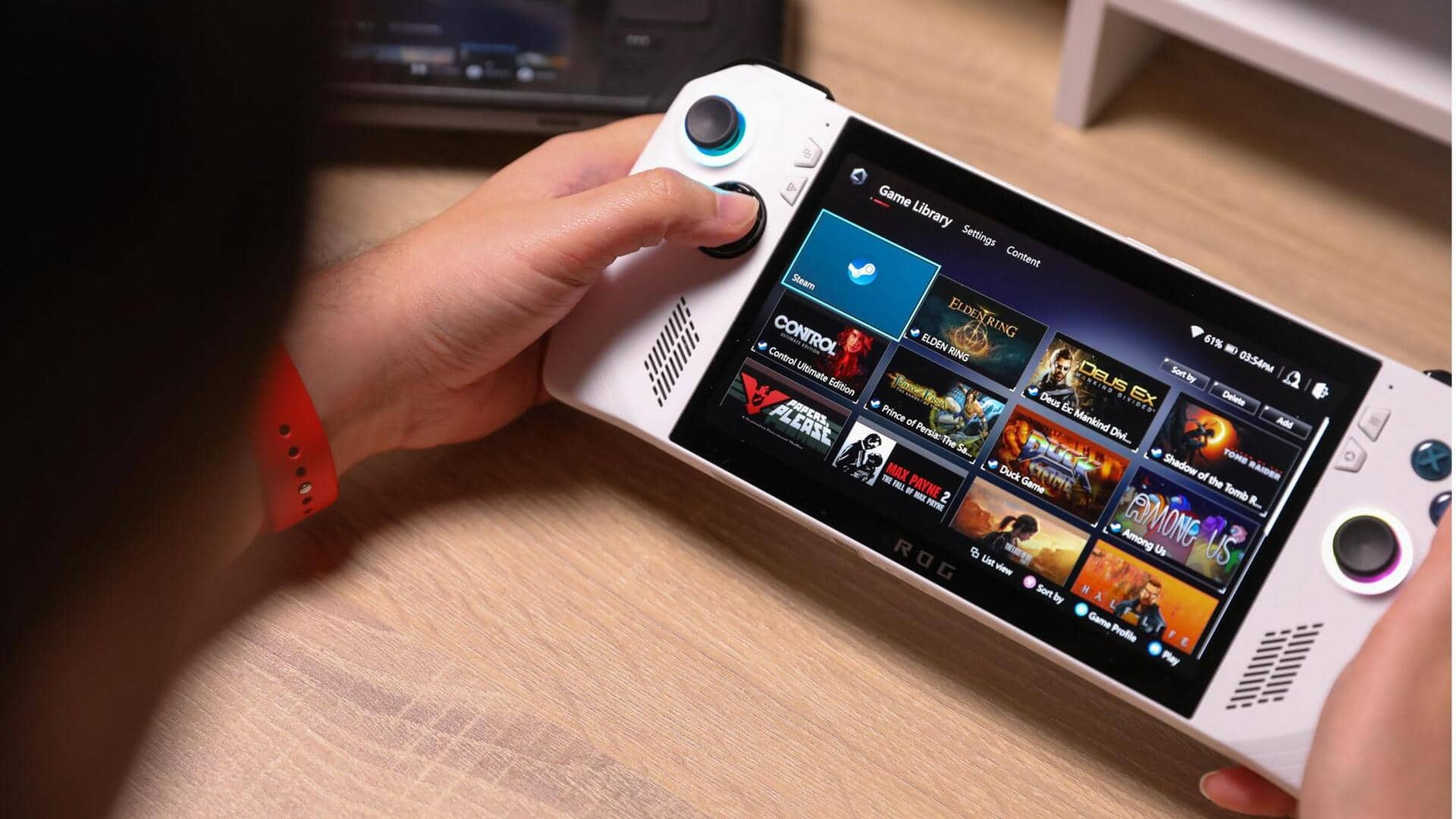
Valve extends SteamOS support to ASUS ROG Ally
What's the story
Valve, the creator of the popular Steam Deck gaming handheld, has announced plans to extend its Linux-based SteamOS support to rival devices like ASUS's ROG Ally. This was confirmed by Lawrence Yang, a designer at Valve, in an interview with The Verge. The move was hinted at in Valve's recent release notes for SteamOS, which mentioned "Added support for extra ROG Ally keys."
Expansion plans
Valve's OS to support other third-party devices
Yang clarified that the reference to ROG Ally keys in the release notes, indicates Valve's intention to extend its SteamOS support beyond its own devices. He stated, "The note about ROG Ally keys is related to third-party device support for SteamOS." Yang further added that their team is actively working on integrating additional handhelds into the SteamOS ecosystem.
Official endorsement
ASUS's stance on SteamOS
Despite Valve's efforts to extend its SteamOS support, it does not necessarily mean that ASUS will officially endorse Valve's installer or sell the Ally pre-loaded with SteamOS. ASUS has previously expressed its preference for Windows due to Microsoft's dedicated validation teams, that ensure compatibility across various hardware configurations and chips.
Development
Progress and future plans for SteamOS
Yang acknowledged that while Valve is making steady progress in extending SteamOS support to rival handhelds, the system "isn't ready to run out of the box yet." In addition to this, Valve is planning a general release of SteamOS 3 which can theoretically be installed on non-handheld PCs. However, similar to its plans for rival handhelds, this isn't ready quite yet.
Dual-booting update
Valve's dual-booting plans for Steam Deck
Regarding the possibility of turning Steam Decks into dual-booting Windows machines, Yang said, "As for Windows, we're preparing to make the remaining Windows drivers for Steam Deck OLED available... There's no update on the timing for dual boot support—it's still a priority, but we haven't been able to get to it just yet." This indicates that while Valve is committed to this feature, its implementation may take some time.